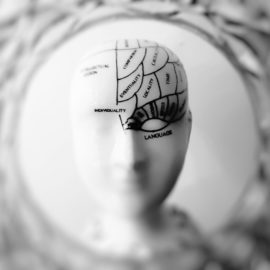
Are you chasing happiness? What if you could catch up to it right now?
Warren Berger says he has the answer, and it’s a question. His book A More Beautiful Question contains several types of inquiries that he says you should make in order to find success. But, the most beautiful question is the one that can bring you satisfaction immediately: “What am I grateful for?”
Read on to learn why this question is so powerful.
“What Am I Grateful For?”
Berger says that, while asking questions in general can help you find added fulfillment in your life, he recommends one question in particular that can help you be happy with the life you have right now. The key question to ask yourself is, “What am I grateful for?”
(Shortform note: Some research supports the idea that practicing gratitude increases your happiness. For example, a 10-week study on gratitude divided people into three groups. One group was asked to write a few sentences each week about good things that had happened to them, the second group was asked to write about bad things that happened each week, and the third was simply asked to write about significant events, whether good or bad. At the end of the 10 weeks, people in the first group (who wrote about what they were grateful for) were significantly happier and more hopeful than the people in the other two groups.)
Berger writes that while “What am I grateful for?” isn’t one of the fundamental questions, it did emerge from a fundamental question posed by filmmaker Roko Belic: “Why are people who struggle with poverty or other hardships often happier than those who are more fortunate?”
(Shortform note: Belic may have been working with an incorrect assumption when posing this question. Some studies have shown that wealthier people are happier, at least up to a point. For instance, a study from 2010 concluded that the average person’s happiness increases with their annual earnings up to about $75,000 per year, at which point increased earnings have much less effect. A more recent study from 2022 said the cutoff point may be much higher—up to $500,000 in annual earnings.)
According to Berger, the answer to that question is gratitude. Struggling people tend to find happiness however they can—for instance, by spending time with their loved ones or volunteering for causes they believe in. On the other hand, wealthy people tend to obsess over acquiring more wealth or more possessions.
In other words, the happiest people aren’t those who have the most “stuff” but those who appreciate what they have. Berger concludes that regularly asking yourself what you’re grateful for is an effective way to recognize and appreciate what you have.
| Get Off the Hedonic Treadmill Following Berger’s advice and practicing gratitude may help you overcome a phenomenon that psychologists call the hedonic treadmill. This “treadmill” is an endless cycle of chasing what we think will make us happy, experiencing a brief moment of pleasure from attaining it, and then chasing the next thing when the pleasure wears off. Psychologists call it a treadmill because we’re constantly “running” after happiness, but we keep winding up in the same place emotionally. Berger’s suggestion of practicing gratitude is one way to break out of this cycle—learning to be happy with what you already have helps you control the urge to chase after more “stuff.” To further help you escape the cycle, here are two other strategies: 1. Before buying something new, stop and ask yourself “Do I really need this, or do I just want it?” If you don’t need it, wait a few days and see if the urge to buy it starts to go away. Remember, you can almost always buy it later. 2. Find pleasure in simple things. You can find contentment and tranquility without spending money or a great deal of effort. Instead of always chasing after big, showy possessions and accomplishments, try enjoying the simple pleasures of taking a walk or watching your favorite TV show. |






